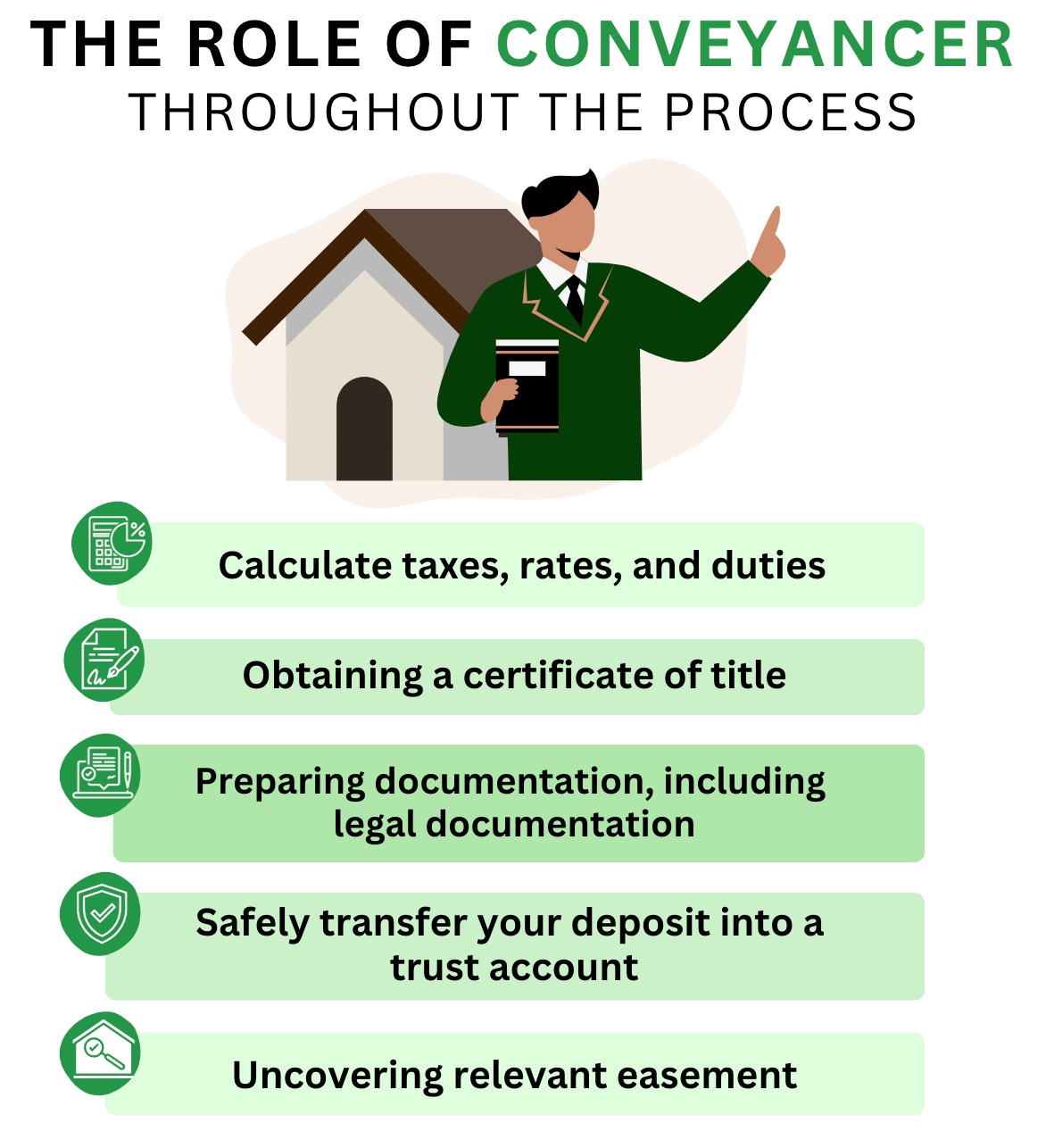Some Known Details About Conveyancer
Some Known Details About Conveyancer
Blog Article
8 Easy Facts About Conveyancer Described
Table of ContentsThe 7-Second Trick For ConveyancerWhat Does Conveyancer Mean?The Main Principles Of Conveyancer The Buzz on ConveyancerHow Conveyancer can Save You Time, Stress, and Money.
This includes sending a transfer deed to the Land Windows registry. It makes sure the purchaser's name is signed up as the new proprietor. Communicating with the Land Computer registry, a federal government division, updates the public document with the residential or commercial property's most current owner. The customer's solicitor handles the stamp task land tax after possession transfer.It's payable to HM Earnings & Traditions. Buyers need to pay this quickly, typically within 14 days of completion, to prevent charges. Residential property acquisitions featured costs, and conveyancing is no exemption. Conveyancing costs cover 2 primary locations: the conveyancer's charge and disbursements. The conveyancer's charge is for the legal work of transferring property.
Repaired fee conveyancing charges an established cost for conveyancing work. It's a market price no matter of the work's intricacy. No Sale No Cost conveyancing ('NSNF') charges only if the purchase is successful. This alternative may include higher fees to counter dangers. It's advised to obtain multiple quotes from conveyancing solicitors.
Selecting a specialist is essential to a smooth property purchase. For a conveyancer search, ask friends or household that've gotten property. Estate agents might likewise advise conveyancers.
Conveyancer Fundamentals Explained
While both conveyancing solicitors and qualified conveyancers are more than capable of taking care of the whole acquiring and marketing procedure, if there are any various other legal aspects that need to be resolved throughout the transaction (such as how you leave building in your Will certainly), a conveyancing lawyer might be an extra ideal selection.

However, you should recognize that generally conveyancers pay recommendation charges to the agents for introduction of a brand-new customer (Conveyancer). Considered that the estate agent obtains a monetary benefit if you choose their conveyancer, you need to take into consideration every one of your choices and go to several conveyancer and compare their fees and testimonials
Ask concerning their local property experience, charges, and the anticipated conveyancing timeline. While technically feasible, the process brings threats and difficulties. Absolutely nothing official statement lawfully bans buyers and vendors from acting as their very own conveyancer.
Some Known Details About Conveyancer
Conveyancing involves numerous legal terms and complex processes. Taking this on without expert training exposes you to potential risks. One oversight can jeopardise your home rights. Failing to spot an issue in the title actions can cause a loss of possession. Errors in the paperwork might trigger disagreements with your home mortgage service provider or postpone websites your relocation.
A conveyancer assists in the prep work of lawful documents essential for the building sale. Preparing the sale contract is an additional task, outlining terms of sale, building cost, boundaries, and legal rights of way.

Little Known Questions About Conveyancer.
This write-up will explain the relevance of the role and the various kinds of specialist conveyancers.

Conveyancers have to follow legal procedures when preparing and processing records for the transfer of building from one person to another. A conveyancer can only act on part of both parties in particular conditions - for instance, if the 2 events are relevant or they are in service collaboration together. Yet a conveyancer should not substitute both events if they have a conflict of passion in connection with the transaction.
The account needs to be approved by Consumer and Business Providers (CBS) and be kept in a bank, constructing culture or lending institution. You should: keep all documents of trust fund moneyissue in-depth receiptsarrange for accounts and records to be audited every year. Conveyancing businesses have to have professional indemnity insurance policy. You need to show evidence of the insurance coverage when you renew your enrollment annually - for instance, a duplicate of the insurance policy certificate.
The Best Strategy To Use For Conveyancer
Conveyancing is the legal procedure by which the legal possession of an immovable building is obtained. Generally, a brand-new deed of transfer is created by a conveyancer and lodged at the acts workplace. In this short article, we will certainly consider everything you need useful source to recognize concerning conveyancing. A conveyancer is an attorney who has been experts (and certified) in the prep work of deeds files which by regulation are registrable in the Deeds Registry.

A conveyancer is primarily the transfer lawyer of a home, a bond attorney taking care of a brand-new bond enrollment, or a cancellation attorney taking care of the cancellation of existing bond(s). The conveyancer gets all the legal paperwork in order to be able to submit with the Deeds Workplace. When you purchase a home, the seller will certainly assign a conveyancer that will certainly file with the Deeds Workplace to obtain the building moved to your name.
Report this page